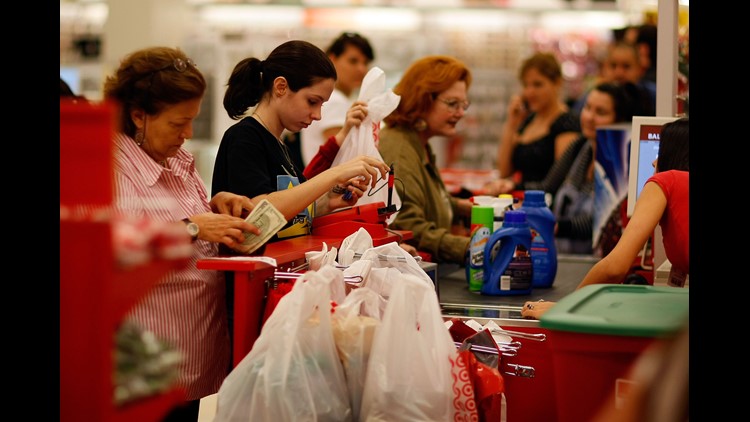HUNTSVILLE, Ala. — Moments ago, Governor Kay Ivey issued a stay-at-home order effective Saturday, April 4, 2020 at 5:00 PM and will expire Thursday, April 30, 2020 at 5:00 PM.
Every person residing in the state of Alabama is ordered to stay at their residence except for the following "essential activities":
- To obtain necessary supplies
- To obtain or provide necessary services
- To attend religious services
- To take care of others
- To work
- To engage in outdoor activity
- To seek shelter
- To travel as required by law
- To see family members
Essential businesses and operations are classified as:
- Government operations: public safety and first responders, law enforcement, fire prevention and response, courts and court personnel, military, emergency management personnel, corrections, probation and parole, child protection, child welfare, EMTs, 911 call-center employees, all workers and vendors that support law enforcement and emergency management operations and services, and other federal, state, tribal, or local officials or employees
- Health-care providers and caregivers: physicians, dentists, mental health workers, nurses, chiropractors, physical therapists, veterinarians, hospitals/clinics, medical practices, research and laboratory operations, hospice, health care facilities, clinical staff, nursing homes, residential health care facilities, adult day care centers, blood banks, congregate-care facilities, assisted living facilities, elder care, medical supply and equipment manufacturers and providers, medical waste disposal, hazardous waste disposal, other ancillary healthcare services
- Infrastructure operations: electric, natural gas, and water utilities, nuclear facilities and other generating facilities, utility poles and components, fuel pipelines and transmission systems, petroleum producers, telecommunications, electronic security and life safety services, wireless communication companies, communications sales and customer support, telecommunications and data centers, cyber-security operations, businesses and other operations concerned with flood control, aviation, and the maintenance, operation, or construction of dams, airports, ports, roads and highways, and mass transit, automotive sales and repair, vehicle rental and taxi services, network providers (such as Uber and Lyft), freight and passenger rail, motor carriers, pipelines, and other transportation infrastructure and businesses, water and waste water systems, transportation companies such as airlines and bus lines, hazardous waste disposal, hotels and commercial lodging services and RV parks
- Manufacturing facilities: food processing and production, companies that produce pharmaceuticals, food additives, medical equipment, medical devices and supplies, technology, biotechnology, chemical products, telecommunications products, automotive production and suppliers, airplane, ship and space vehicle or rocket manufacturers, companies involved in healthcare, energy, steel and steel products, fuel and petroleum exploration and production, lubricants, greases and engine oils, mining, national defense, sanitary and cleaning products, household products, personal care products, products used by any other Essential Businesses and Operations
- Agricultural operations and farms: food cultivation, livestock, cattle, poultry and seafood operations, transportation of agricultural products, livestock auctions, feedlots, dealers and brokers of livestock, farmer's markets, feed stores repairers and suppliers of agricultural equipment, gas, diesel and petroleum suppliers, companies involved with aquaculture, horticulture, and chemicals, including pesticide, herbicide and fertilizer producers and distributors, forest products businesses, including those involved in forestry operations, logging, manufacture of lumber and paper products, meat processing facilities, rendering facilities and transporters, feed processing facilities, veterinary services
- Essential retailers: supermarkets, food and beverage stores, including liquor stores and warehouse clubs, food providers, convenience stores, office-supply stores, bookstores, computer stores, pharmacies, health care supply stores, hardware stores, home improvement stores, building materials stores, stores that sell electrical, plumbing and heating materials, gun stores, gas stations, auto, farm equipment, bicycle, motorcycle, and boat supply and repair stores, and businesses that ship or deliver groceries, food and good directly to residences
- Restaurants and bars
- Essential personal services: trash collectors, mail and shipping services, home repair, automotive sales and repair, warehouse, distribution and fulfillment centers, kennels, animal shelters, laundromats/laundry service, dry-cleaners, childcare facilities, public transportation, and providers or business services including security and payroll, funeral, cemetery, and related services
- Media operations: newspapers, digital news sites, television, radio and other media services
- Education operations: educators supporting public and private K-12 schools, colleges and universities or other educational institutions for purposes of facilitating distance learning and education continuity plans approved by the State Superintendent of Education, performing critical research or other essential functions, including public schools preparing and transporting distance-learning materials and meals to eligible students and colleges providing lodging for students
- Financial services: banks and related financial institutions, credit unions, payday lenders, businesses that process credit card and other financial transactions, and other services related to financial markets
- Professional services: legal services, accounting services, insurance services, real estate services (including appraisal and title services)
- Providers of basic necessities to economically disadvantaged population including businesses, religious and secular non-profit organizations, food banks, homeless shelters and congregate-care facilities
- Construction and construction-related services: building and construction, lumber, building materials and hardware businesses, electricians, plumbers, other construction tradesmen and tradeswomen, exterminators, cleaning and janitorial, HVACR and water heating businesses, painting, moving and relocating services, other skilled trades, and other related construction firms and professionals for maintaining essential infrastructure
- Essential public services: services necessary to maintain the safety, sanitation and essential operations of residences and essential businesses and essential business operations, including law enforcement, fire prevention and response, firearm and ammunition manufacturers and retailers, building code enforcement, security, emergency management and response, building cleaning including disinfection, automotive sales and repair, mortuaries and cemeteries
- Military or defense operations: employers and personnel who support the essential products and services required to meet national security commitments, including personnel working for companies and their subcontractors, who perform under contract to the Department of Defense providing materials and services to the Department of Defense and government-owned/contractor-operated and government-owned/government-operated facilities
- Essential services or product providers: vendors that provide services or products, including logistics, transportation, and technology support, child care programs and services, medical waste disposal, hazardous waste disposal, services needed to ensure the continuing operation of an essential business or operation, operation of government agencies, and to provide for the health, safety and welfare of the public.
- Religious entities: religious and faith-based facilities, entities and groups
- Federally-designated critical infrastructures: workers and related industries identified by the U.S. Department of Homeland Security, Cybersecurity & Infrastructure Security Agency (CISA)
- Other state-designated essential businesses and operations: businesses and operations deemed essential by the Alabama Department of Public Health or the Alabama Emergency Management Agency
- Support operations for essential businesses and operations: employees, contractors agents, suppliers, or vendors of an essential business or operation as defined in this paragraph
Non-essential businesses and operations are classified as:
- Entertainment venues: night clubs, bowling alleys, arcades, concert venues, theaters, auditoriums and performing arts centers, tourist attractions (including museums and planetariums), racetracks, indoor children's play areas, adult entertainment venues, adult novelty stores, casinos, bingo halls, venues operated by social clubs
- Athletic facilities: fitness centers and commercial gyms, spas and public or commercial swimming pools, yoga, barre, and spin facilities, spectator sports, sports that involve interaction with another person of closer than 6 feet, activities that require use of shared sporting apparatus and equipment, activities on commercial or public playground equipment
- Close-contact service providers: barber shops, hair salons, waxing salons, threading salons, nail salons and spas, body art facilities and tattoo services, tanning salons, massage therapy establishments and services
Make sure you are still implementing a six-feet rule and no more than ten people within a public gathering. You can view Governor Kay Ivey's full order here: https://www.scribd.com/document/454872747/Alabama-Gov-Kay-Ivey-issues-shelter-in-place-order#fullscreen&from_embed



